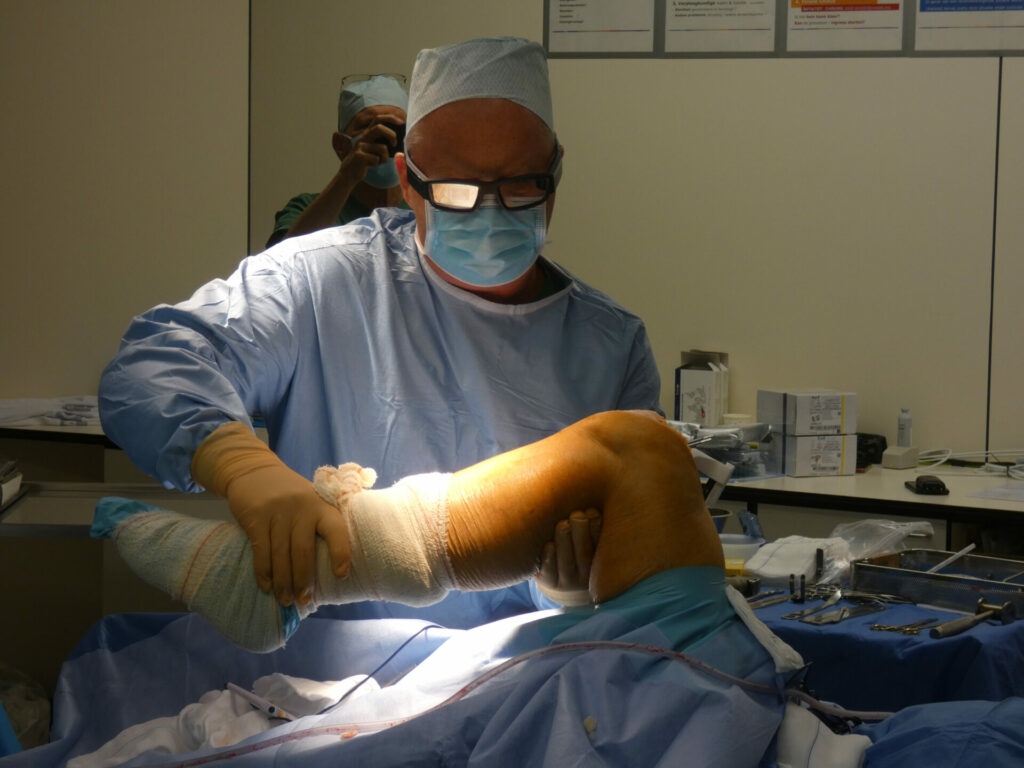Orthopaedists will have to be selective in which patients over 50 will receive knee surgery, thanks to a quota imposed by the National Institute for Health and Disability Insurance (Riziv) through the Official Gazette.
Moving forward, each doctor will only be allowed to perform 45 meniscus operations for every 100 operations on patients over 50. It is the first time that doctors have been restricted in this way, Het Niewsblad reports.
Meniscus operations on patients over 50 will be defined as "a manifest deviation from good medical practice."
According to Riziv, Belgian people over 50 undergo too many surgeries compared to those in neighbouring countries, and too often for a damaged meniscus, which is two C-shaped pieces of soft cartilage found on each side of a person's knee. The insurance institute stated that knees don't always need surgery. However, this does not mean that older patients will be neglected when they are in pain.
"Not performing surgery does not equate to neglecting your patient," explained Professor Jan Victor, knee surgeon at UZ Gent and director at the Belgian Society for Orthopaedics and Traumatology. "The expectation level for surgery is very high in Belgium. But you cannot cut away pain, everyone agrees. If you go cycling more often than walking, you can already alleviate the problems. Sometimes a small injection can also help."
A meniscectomy costs the State around €800, according to the Riziv, and in 2018, over 20,000 people over 50 underwent such a surgery. The Riziv thus wants to limit these surgeries to free up money for other types of care.
Related News
- Record levels of short- and medium-term sick leave in Belgium
- UN report urges rethink of how countries address demographic challenges
This is the first time the government has used its ability to enforce quotas that curb unnecessary and unnecessarily expensive treatments for a medical procedure.
A sensitising campaign has been run in the past, but the Riziv argued that even after the campaign, "the number of meniscectomies has not been substantially reduced." Spot checks will therefore be carried out and orthopaedists who operate on more than the allowed number of patients over 50 years of age and cannot adequately justify it may receive a warning.

